
Indigenous peoples of Venezuela commemorate the Day of Indigenous Resistance, in Caracas, October 12, 2023. Photo: Ministry of Culture of Venezuela.

Orinoco Tribune – News and opinion pieces about Venezuela and beyond
From Venezuela and made by Venezuelan Chavistas

Indigenous peoples of Venezuela commemorate the Day of Indigenous Resistance, in Caracas, October 12, 2023. Photo: Ministry of Culture of Venezuela.
On Thursday, Venezuela commemorated the Day of Indigenous Resistance and Decolonization. This day marks the 531st anniversary of the arrival of Spanish colonizers in the region who imposed, with blood and fire, a hegemonic system of slavery, first against the indigenous peoples and then against Afro-descendants.
On Thursday, the president of Venezuela, Nicolás Maduro, expressed in his social media accounts, “We pay tribute to the indigenous resistance, a feat of our ancestors who gave their lives to defend our land from colonial invasion. We advocate for the recognition of an ancestral heritage that belongs to all the peoples of the Patria Grande and comes from centuries of sacrifice, rebellion, and struggle for freedom.”
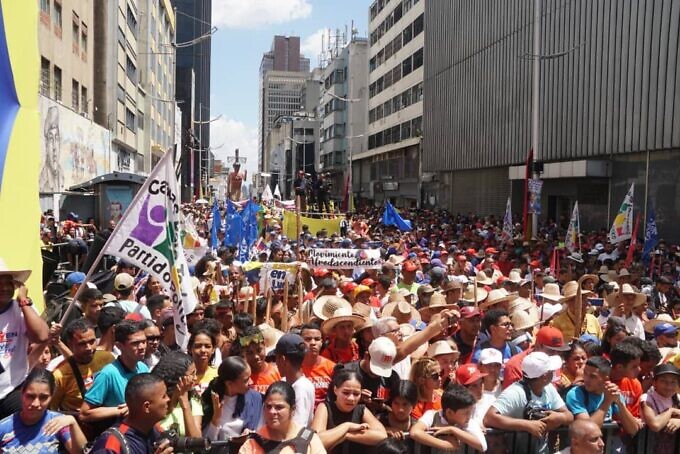
Throughout the day, a series of activities unfolded in the city of Caracas, drawing the participation of thousands of individuals alongside government officials.
Among the activities, a notable event included a march from the Carabobo Park district to the National Assembly building, during which the Venezuelan populace presented a manifesto representing the indigenous communities to National Assembly members. This demonstration signaled support for the consultative referendum advocating the safeguarding of the Essequibo region as Venezuelan territory.
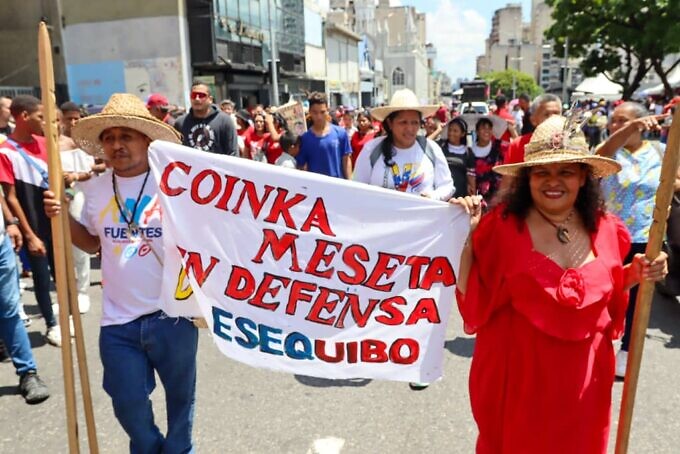
In another march, the largest puppet in Latin America, eight meters high, passed along the University Avenue, along with other smaller puppets, to tell the story of Amalivaca, the god of the Tamanacos.
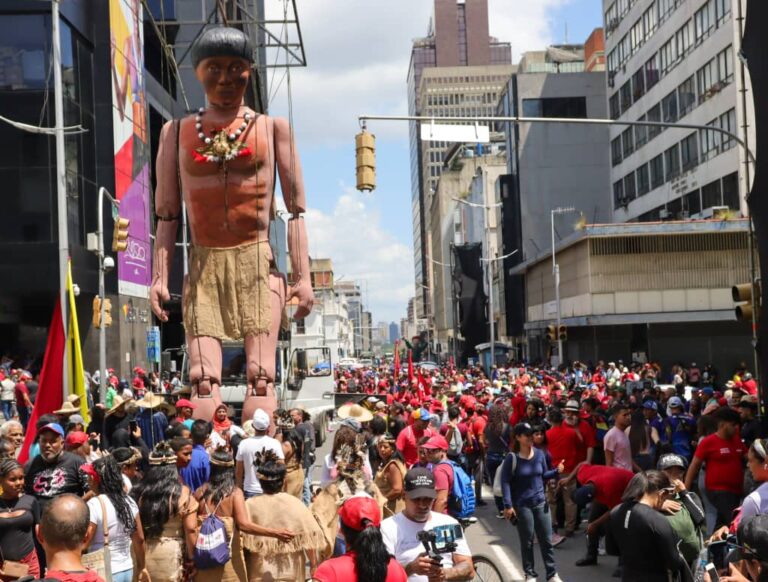
A project led by the National Theater Company, in conjunction with the theater group Center of Alternative Activities, this initiative is a fusion between theater and the staging of puppets that recreate the cosmovision of the indigenous Tamanacos people.
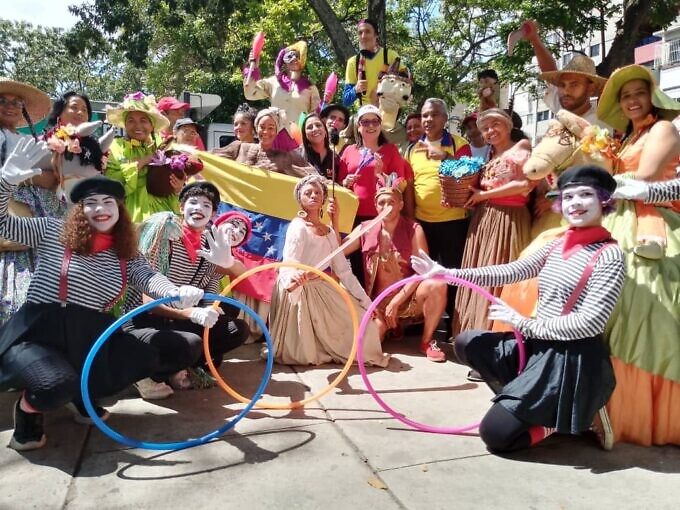
As part of the commemorative acts for the Day of Indigenous Resistance and Decolonization, a solemn activity was held at the National Pantheon headed by the Minister for Indigenous Peoples Clara Vidal, who highlighted the importance of the date as a voice against neocolonialism.
Minister Vidal also condemned the impact of the unilateral coercive measures imposed by the United States and Europe against Venezuela, which poses a great challenge to maintain the rights for the indigenous peoples enshrined in the Constitution of the Bolivarian Republic of Venezuela.
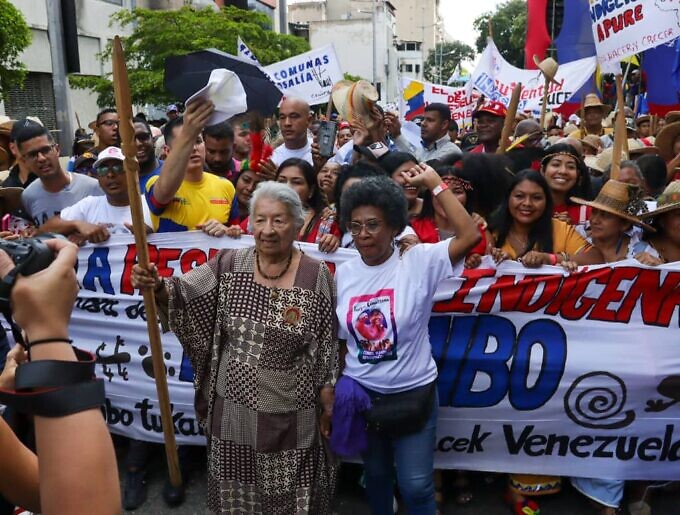
From October 10-12, the First Insurgent Meeting for Venezuelanity was held in the headquarters of the Venezuelan School of Planning. It included representatives from the 31 indigenous peoples of Venezuela, Afro-descendant leaders, historians, and intellectuals.
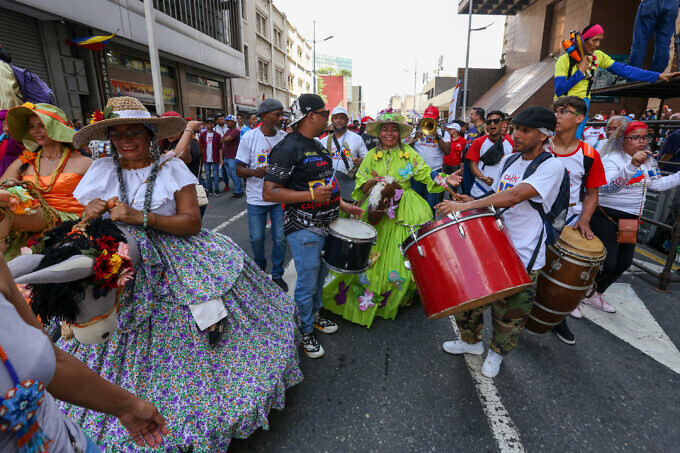
Venezuelan Minister of Culture Ernesto Villegas Poljak stated that the time of racist and classist projects entrenched in conservative governments has ended. He added that these governments had the aim of “improving the race” the purpose of which was to bury the self-esteem of the Venezuelan people.
In 2002, then President Hugo Chávez renamed October 12 as the Day of Indigenous Resistance, to replace the former “Day of the Race” and to acknowledge that, in 1492, the so-called discovery of the American continent by Spain did not start an age of civilization, but rather a process of barbarism and annihilation against the indigenous peoples as well as the plundering of resources in the Latin American region.
(Alba Ciudad) by Luigino Bracci Roa
Translation: Orinoco Tribune
OT/SC/DZ/

He is passionate about computer science since he was about 14 years old, at that age “a man gave me a small computer that he had bought in the eighties, of those that were connected to a television and had to be programmed to work (a Sinclair ZX81 ), and I really liked it.” On his political inclination, his parents were a great influence. “They were people of very humble origins, both emigrants, dissatisfied with injustice and inequality. But they were not militants of the left. I had many other influences, classmates in HS whose parents were on the left, as well as several teachers who were trained in the Pedagogical and gave us classes at a time as conflictive as it was the presidency of CAP and the military insurrection of Chávez ” He enrolled in the UCV and in 2006 he graduated in Computing, a career that he complements with popular communication in the digital field.